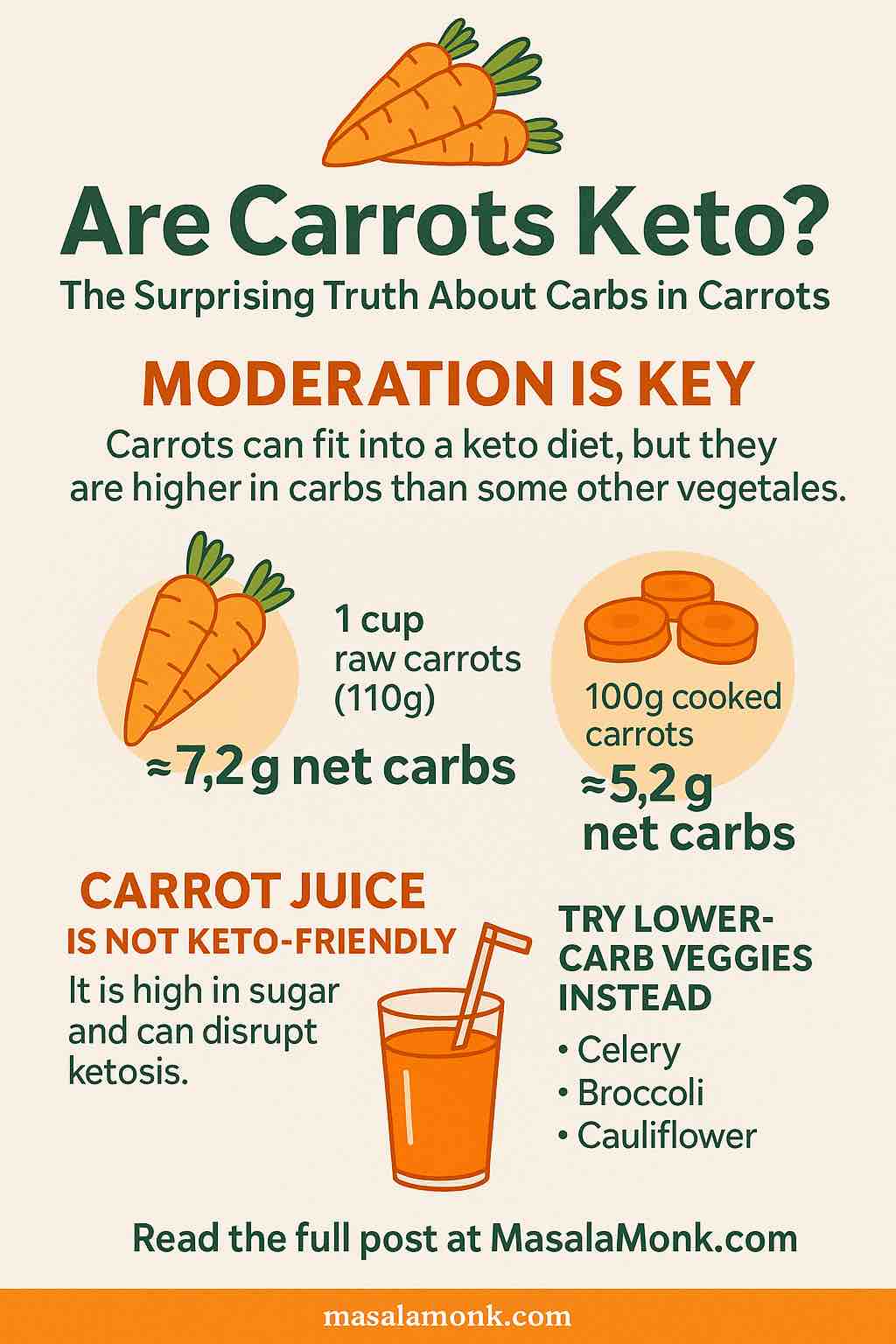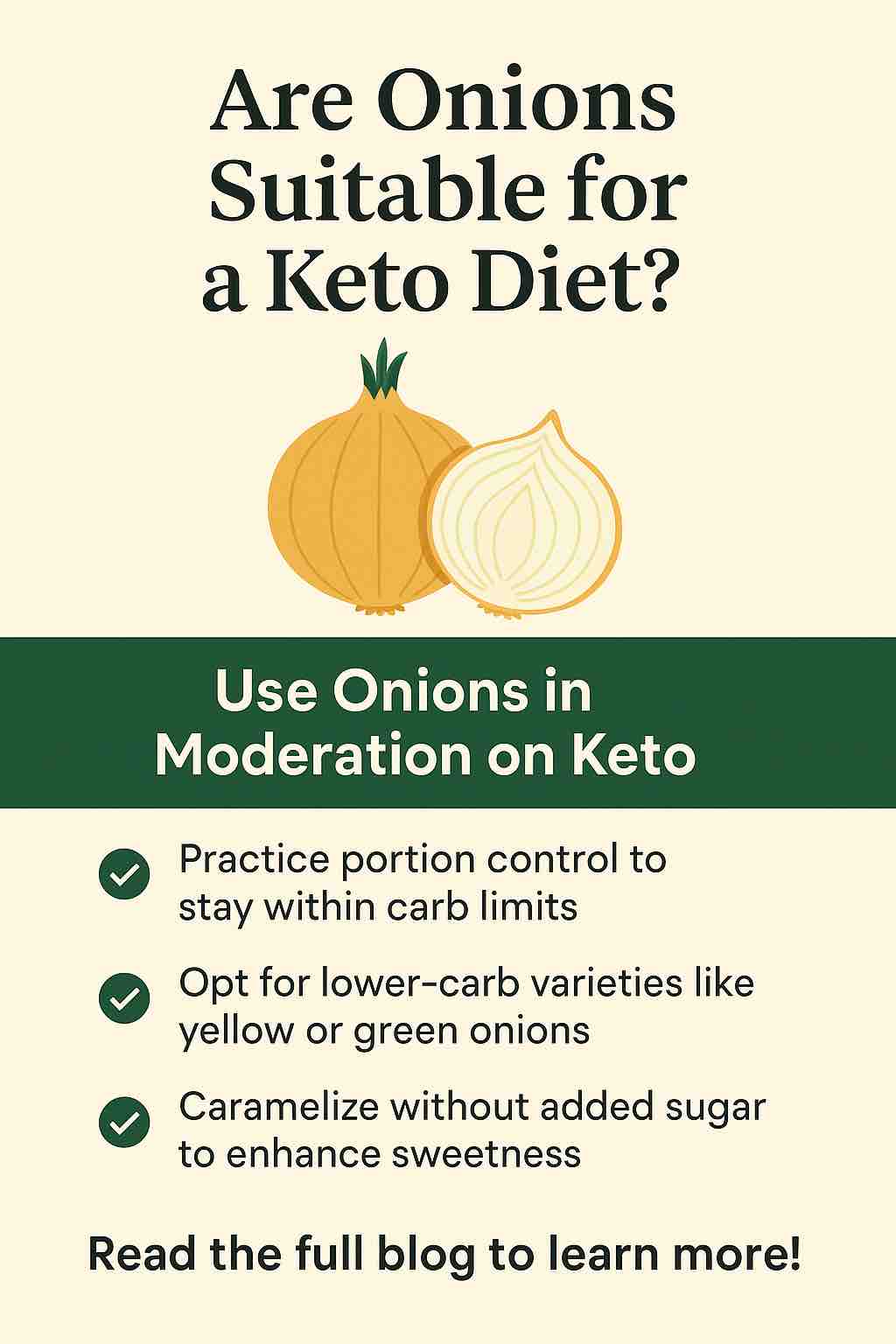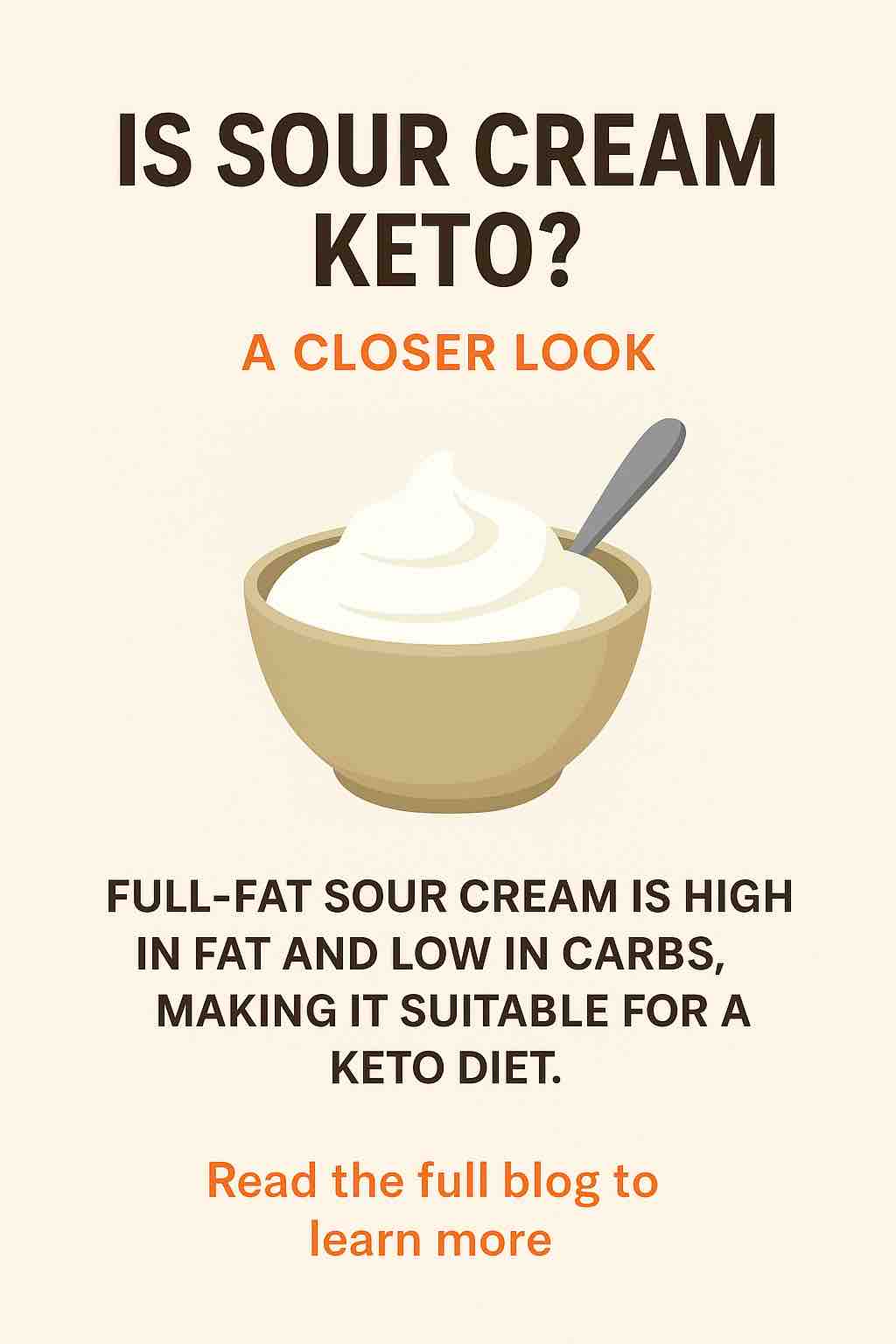
Are carrots keto-friendly? Discover the truth about carrots and the keto diet, including net carbs, smart portion sizes, and keto-friendly alternatives.
Introduction: Carrots and Keto – Friend or Foe?
You’ve finally committed to the keto lifestyle. You’ve stocked up on avocados, leafy greens, and coconut oil. But then it hits you—what about carrots? They’re healthy, crunchy, and naturally sweet. But are they keto-friendly?
If you’ve ever typed “are carrots keto” into a search bar, you’re not alone. In this post, we’ll break down everything you need to know about carrots and the ketogenic diet—from net carbs to keto-safe alternatives—so you can make the best decision for your low-carb lifestyle.
The Keto Diet Basics: Why Carbs Matter
The ketogenic diet is a high-fat, moderate-protein, and low-carbohydrate eating plan that shifts your body into a state of ketosis, where it burns fat for fuel instead of glucose. To maintain ketosis, most keto diets restrict net carbs to around 20 to 50 grams per day.
That’s where carrots come into question. Although they’re loaded with nutrients, their natural sugar content means they’re higher in carbs than other keto staples like spinach or zucchini.
Carrot Carb Count: How Many Carbs Are in Carrots?
Understanding the carbohydrate content in carrots is key:
- Raw Carrots (1 cup, chopped / 110g): 10.5g total carbs, 3.1g fiber → 7.4g net carbs
- Cooked Carrots (100g): Around 5.2g net carbs
- 1 Medium Carrot: Roughly 6g total carbs
While these numbers aren’t astronomical, they can add up quickly on a low-carb plan.
So, Are Carrots Keto-Friendly?
Short answer: Yes, but in moderation.
Carrots are not as low in carbs as leafy greens, but they are certainly lower than many other root vegetables (like potatoes or parsnips). They can be part of a well-balanced keto meal—especially when used in small amounts.
In fact, registered dietitians confirm that you can include carrots on keto if you keep your portions controlled and your overall carb intake within the recommended range.
How to Eat Carrots on Keto (Without Getting Kicked Out of Ketosis)
Here are a few smart ways to enjoy carrots on a keto diet:
1. Use Carrots as a Garnish
Sprinkle shredded carrots on salads or low-carb slaws to add crunch and color.
2. Roast with Low-Carb Veggies
Mix a few carrot chunks with roasted cauliflower, zucchini, or broccoli to dilute the carb impact.
3. Add to Soups or Stews
Incorporate small amounts into hearty soups to stretch flavor without piling on carbs.
4. Watch Your Portions
Stick to a small serving—such as half a carrot or a handful of slices—especially if you’re close to your daily carb limit.
Carrot Juice on Keto? Think Again
While raw carrots can work in moderation, carrot juice is not keto-approved. Juicing removes the fiber, concentrating the natural sugars and carbs. One cup of carrot juice can contain up to 22g of net carbs, which is enough to take up your entire carb allowance for the day.
Better Keto Veggie Alternatives
If you’d rather save your carbs for other foods, try these ultra-low-carb substitutes:
- Celery: ~1.5g net carbs per cup
- Zucchini: ~2.5g net carbs per cup
- Cauliflower: ~3g net carbs per cup
- Cucumber: ~2g net carbs per cup
- Radishes: ~2g net carbs per cup
These veggies provide crunch and nutrition without as many carbs.
Final Verdict: Carrots on Keto
So, can you eat carrots on a keto diet? Yes—but portion control is everything.
Carrots are nutrient-dense and offer a slight sweetness that can satisfy cravings in a keto-friendly way. Just keep an eye on serving sizes and always factor them into your daily carb count.
If you’re strategic about it, you don’t have to ban carrots from your keto journey. In fact, they can be a refreshing addition to an otherwise very green plate.
FAQs
1. Are carrots considered low-carb?
Carrots are moderately low in carbs. One cup of chopped raw carrots contains around 7.4g net carbs, which is higher than most leafy greens but lower than other root vegetables like potatoes.
2. Can I eat carrots every day on a keto diet?
You can eat carrots on keto in small portions, but daily consumption may add up quickly. It’s best to rotate them with lower-carb vegetables to stay within your daily carb limit.
3. Are baby carrots keto-friendly?
Baby carrots have roughly the same carb content as regular carrots—about 8g net carbs per cup—so portion size is still key.
4. Will eating carrots kick me out of ketosis?
If you stay within your overall daily carb limit (typically 20–50g net carbs), eating a small serving of carrots should not kick you out of ketosis.
5. How many carrots can I have on keto?
Stick to half a medium carrot or a small handful of slices (around 3–4g net carbs) if you’re trying to stay in strict ketosis.
6. What’s the best way to prepare carrots on keto?
Roasting carrots with low-carb vegetables or using them in soups and stews are great ways to enjoy them without overloading on carbs.
7. Is carrot juice keto-approved?
No. Carrot juice is not keto-friendly because it contains a high concentration of sugars and carbs—up to 22g net carbs per cup.
8. Are cooked carrots better than raw for keto?
The carb content is similar, but cooking can make carrots sweeter and more flavorful. Just keep the serving size moderate.
9. Can I eat carrots on dirty or lazy keto?
Yes. Dirty and lazy keto diets are more flexible with food quality and types, so carrots are more commonly allowed—as long as your macros fit.
10. What are the best keto substitutes for carrots?
Try zucchini, celery, radishes, cucumber, or cauliflower for similar textures with fewer carbs.











